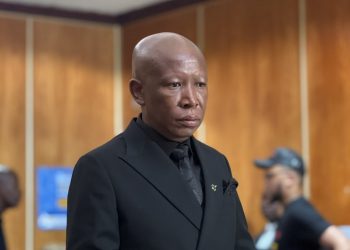A deepening leadership crisis is rocking the uMkhonto weSizwe (MK) Party, with Jacob Zuma’s daughter Duduzile Zuma-Sambudla and Secretary-General Floyd Shivambu embroiled in a bitter power struggle that threatens to destabilize the fledgling political movement.
Multiple party sources confirm the rift has evolved from behind-the-scenes tensions to open factional warfare, with competing visions for the party’s future now dividing its ranks. Zuma-Sambudla’s camp, drawing support from radical economic transformation hardliners and Zuma loyalists, is pushing for combative populism reminiscent of her father’s presidency. Meanwhile, Shivambu – the former EFF deputy president who crossed to MK in 2024 – is advocating for a more structured, policy-based approach to attract disenchanted ANC voters.
The conflict has crystallized around three flashpoints:
- Candidate selection for upcoming by-elections, where Zuma-Sambudla’s faction favors activist candidates while Shivambu prefers experienced organizers
- Control of provincial structures in KZN and Gauteng, with both sides accusing the other of stacking branches
- Strategic messaging, including whether to prioritize youth protests or parliamentary maneuvers
“These aren’t just personality clashes – this is about whether MK becomes a protest movement or a governing alternative,” revealed an NEC member speaking anonymously. The infighting has already delayed the party’s policy conference by three months.
Political observers note the irony of history repeating itself. “Shivambu left the EFF citing internal divisions, only to encounter the same in MK,” said analyst Ebrahim Fakir. “Meanwhile, Duduzile is learning that the Zuma name guarantees influence but not control in this new political landscape.”
With Jacob Zuma conspicuously avoiding mediation and the party’s first national conference looming, the standoff risks paralyzing MK’s growth. Some provincial leaders are already threatening to form breakaway structures if the conflict isn’t resolved.
As the ANC watches from the sidelines, the MK Party faces its defining test: can it channel its anti-establishment energy into coherent governance, or will internal battles consume it before reaching maturity? The answer may determine whether South Africa’s political wildcard becomes a lasting force or a cautionary tale.





















